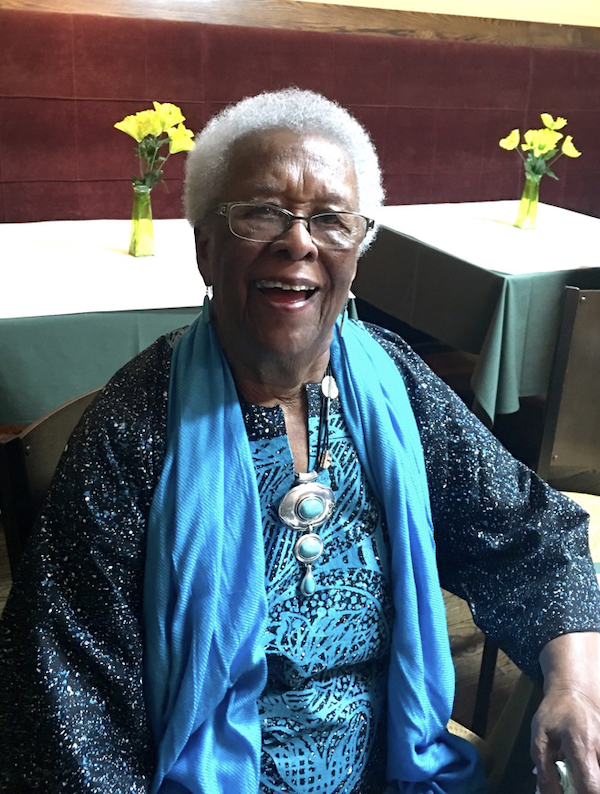Josephine Wyatt
A founding member of NAARPR/CAARPR, Josephine Wyatt spent her life in the fight against racism and for peace, justice, and equality.
Wyatt was born in McDonough, Georgia, in 1921, one of nine children. There were no high schools for Black people in her county. Rather than go without an education, she lied about where her parents lived to be able to attend Booker T. Washington High School in Atlanta. Sadly, her lie was discovered and she was kicked out before she could complete her schooling. Wyatt has said that this experience of racial injustice informed her understanding of the anti-Apartheid struggle in South Africa.
She went on to work as a domestic, taking care of the children of well-off white people. When she was 29, one year after marrying her husband Willie Thomas Wyatt, she moved to Chicago, in 1950. It was in Chicago where she met other progressives and began her work in Black liberation.
Much of this work was focused in Lawndale, the 24th ward in which she lived. They would have “protest meetings” with the owners of neighborhood stores, many of whom were not from the neighborhood, and confront their reluctance to hire Black people. Their organized pressure created jobs for local African Americans. They ran the first campaign for a Black alderman in the 24th ward. Decades later Wyatt would work on Harold Washington’s historical campaign and help him become the first Black mayor of Chicago.
Wyatt would picket the South African Consulate every Thursday with radical groups and refused to spend money with corporations making a profit in the country. It was here that she met Clarice Durham. The friendship of these two impassioned women would strengthen their activism. Wyatt also visited Johannesburg in 1990, which gave her a better understanding of racism abroad.
Wyatt was a tireless leader in the Free Angela Davis campaign, and forged a lifelong friendship with Davis along the way. It was through this work that Wyatt and Clarice Durham founded the National/Chicago Alliance Against Racist & Political Repression (NAARPR/CAARPR), and Wyatt’s rage at the mass incarceration of Black people was the center of it. She remained a stalwart of the Alliance for the rest of her life by serving as chair and treasurer of the Chicago branch. In her memory, CAARPR continues on in her spirit to lead and inspire the activists of today.
“There’s still people that may like me, but don’t like my politics, if you know what I mean. They don’t like making waves. You know, [the kind who] just go along to get along.
"And those people — I don’t really call them friends, I call them neighbors.”
